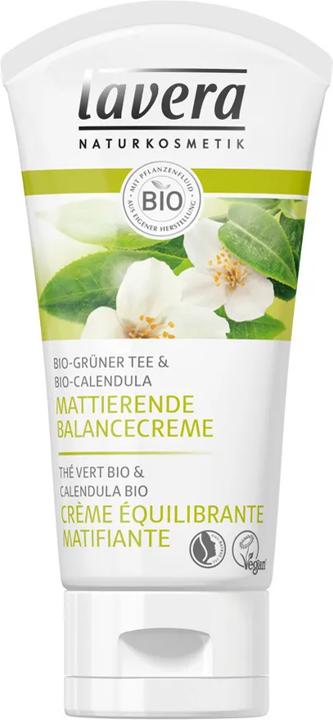

Is green tea really a miracle cure?
It is said to have many virtues: it helps to fight cancer and Alzheimer's disease, lose weight, combat acne, reduce stress and much more. A real miracle cure. But what about the panacea that is green tea?
If you search online for the effects of green tea on health, you may get the impression that you've stumbled across a genuine miracle cure : Alzheimer's disease, multiple sclerosis, diabetes and even various types of cancer are just some of the illnesses against which green tea is touted as a curative or preventive remedy. It is also claimed to help with weight loss and acne when applied to the skin. So far so good, but what's really going on with these promises of healing?
How is green tea produced?
Green tea, like black tea, is produced from the leaves of the Camellia sinensis plant. Unlike green tea, the leaves of black tea plants are fermented, causing them to lose their green colour. For green tea, the young shoots of the Camellia plant are harvested and then first stored in "withering plants" to reduce the water content to 30-40%. Unlike black tea, green tea leaves are not fermented afterwards. Instead, they are treated with hot steam to stop the enzymatic reaction. This preserves the phenolics: the reason the leaves stay green.
Camellia sinensis and the active substance EGCG
The green tea manufacturing process already gives an indication that the promised health benefits may well be true. Thanks to gentle production and the fact that young shoots and leaves are used for tea, many plant substances remain present and can potentially have a positive effect on our organs. One important active substance that has already been well studied is the secondary plant substance epigallocatechin gallate or EGCG. If you're looking for scientific publications on this substance, you can't escape the results: in the last three years alone, more than 1500 studies have been published on the subject. It's worth mentioning, however, that so far the effect has generally only been demonstrated on animals.
Here is an overview of some of the scientific findings on the effects of EGCG:
- Insulin: EGCG inhibits the breakdown of starch in the body, preventing sugar from being broken down as quickly. As a result, green tea halves blood sugar levels after a meal containing carbohydrates. This may explain the slimming effect attributed to green tea. In addition, EGCG also inhibits an enzyme whose activity plays a role in the development of insulin resistance, which can in turn lead to diabetes.
- Cholesterol levels: EGCG is also known to have a positive effect on the blood vessels themselves by making them more elastic. In addition, it reduces cholesterol levels. Both can protect against arteriosclerosis.
- Diseases affecting nerve cells: EGCG has an anti-inflammatory and antioxidant effect that helps to maintain the balance of the immune system and protect nerve cells against excessive reactions. It prevents or halts the degeneration of certain proteins in the body responsible for the onset of Alzheimer's and Parkinson's disease.
- Cancer: On the one hand, EGCG reduces DNA damage, which can subsequently lead to the development of cancer. On the other hand, it can help to virtually starve already existing tumours by inhibiting the formation of tumour blood vessels. Without a blood supply, tumours cannot continue to develop. In this way, EGCG may have a preventive effect against intestinal cancer in cases of intestinal polyps.
- Skin: positive effects on the skin have also already been scientifically proven. UV damage to the skin and various blood vessel-related skin diseases can be reduced thanks to EGCG. In addition, treatment with this plant substance also has an effect on skin thickness, so anti-ageing effects have also been demonstrated.
- Stress: by preventing cortisol, the stress hormone, EGCG can help reduce stress.
It is therefore clear that the positive effect of green tea on our body and mind is well and truly real. Many aspects of the health benefits have been demonstrated (although often not yet studied with human subjects) and research continues to progress.
Drink, cream, swallow
Whether it's tea to drink, skin creams made with tea extract or even EGCG in capsule form, it's up to you to decide how you want to enjoy its health benefits. In addition to the benefits mentioned above, however, you should bear in mind that green tea contains caffeine. Theine and caffeine are the same thing, it's simply the caffeine in tea that is often referred to as theine. And it's precisely this caffeine that explains why you shouldn't drink too much green tea. You can drink up to 1.5 litres a day without harming yourself (apart from more frequent trips to the toilet). As caffeine can reduce or slow down the absorption of certain medicines, you shouldn't overdo it either. And in the second half of the day, it's best not to drink green tea, so as not to disrupt your sleep rhythm. What's more, it's worth opting for organic teas, as this reduces the load of harmful substances, which is unfortunately a problem with many teas. If you have stomach problems, such as ulcers, or inflammatory bowel disease, you should be careful with green tea and watch your body's reaction carefully, as the symptoms may be amplified. In these cases, as well as when taking EGCG in capsule form, it is always advisable to consult your doctor. When using green tea-based skin creams, simply follow the advice corresponding to your skin type.
So I can answer my initial questions positively in the case of green tea: yes, there is clearly some truth to green tea's beneficial effect on health, even from a scientific point of view. So get your cups of tea!!
[[small:]]
Science editor and biologist. I love animals and am fascinated by plants, their abilities and everything you can do with them. That's why my favourite place is always the outdoors - somewhere in nature, preferably in my wild garden.
Practical solutions for everyday problems with technology, household hacks and much more.
Show all


